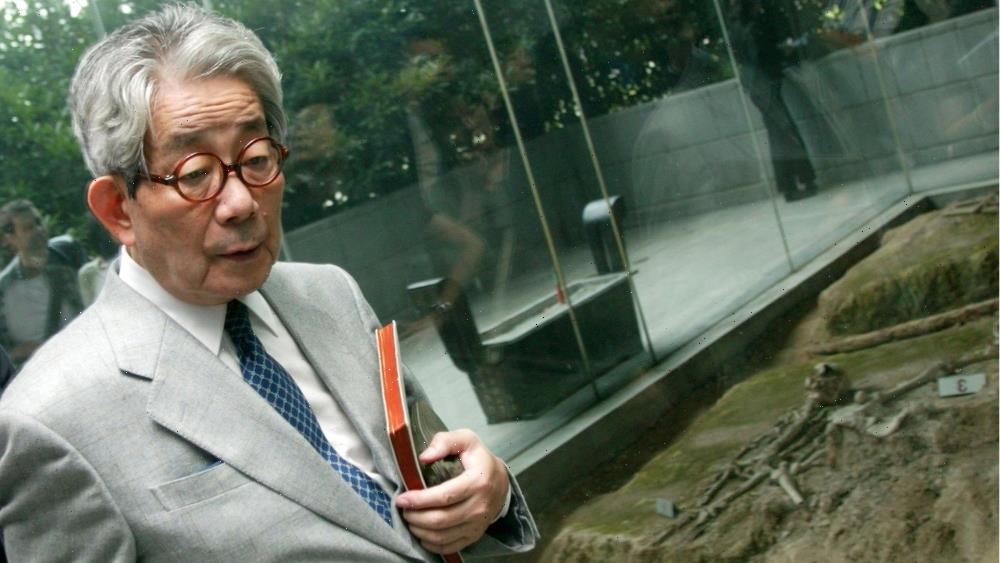Japanese author Oe Kenzaburo, the winner of the 1994 Nobel Prize in Literature, has died at age 88. His date of death, ascribed to old age, was March 3.
A total of six films have been made from Oe’s work, most recently the 2001 “Gibier d’élevage,” a reworking of “The Catch” by Cambodian director Rithy Panh.
Born in 1935 in Ehime Prefecture on the island of Shikoku, Oe began writing while still a student of French literature at the University of Tokyo. Not long after graduating in 1957, he published “The Catch,” a novella about a Black American airman who finds himself captured by rural Japanese villagers in the waning days of the war. It won the prestigious Akutagawa Prize and was made into a 1961 film by Japanese Nouvelle Vague auteur Oshima Nagisa.
His career now launched, Oe made World War II and its aftermath a central theme of his subsequent writing. In addition to journalism on the bombing of Hiroshima with a strong anti-war slant, he criticized the Emperor system while defending Japan’s war-renouncing constitution.
These and other stances made Oe persona non grata with conservatives, but he remained staunchly pacifist and anti-nuclear throughout his life. Following the earthquake and tsunami on March 11, 2011 that caused a massive reactor meltdown at the Fukushima Daichi Plant, Oe wrote an essay for “The New Yorker” calling for an end to nuclear power plant construction.
A key turning point came in 1963 when Oe’s first son, Hikari, was born with severe brain damage. As he and his wife devoted themselves to his care, Oe fictionalized the experience in his 1964 novel “A Personal Matter” and other works.
In 1995 director Itami Juzo, who was Oe’s childhood friend and the husband of his sister, released “A Quiet Life,” a drama focusing on the adult Hikari. Watabe Atsuro won a Newcomer of the Year award from the Japan Academy for his portrayal of the character.
In 2005 Oe told the Guardian newspaper that “I was trained as a writer and as a human being by the birth of my son.”
In 1994, Oe was awarded the Nobel Prize in Literature, the second Japanese to receive this honor after Kawabata Yasunari.
Read More About:
Source: Read Full Article
